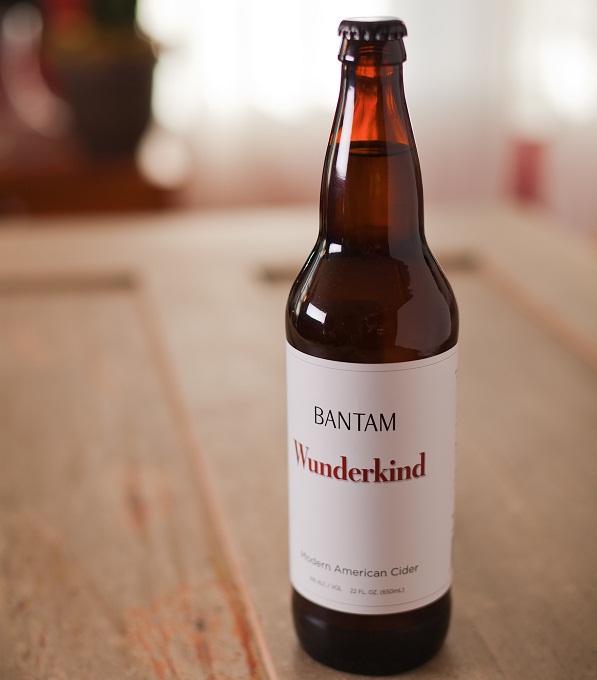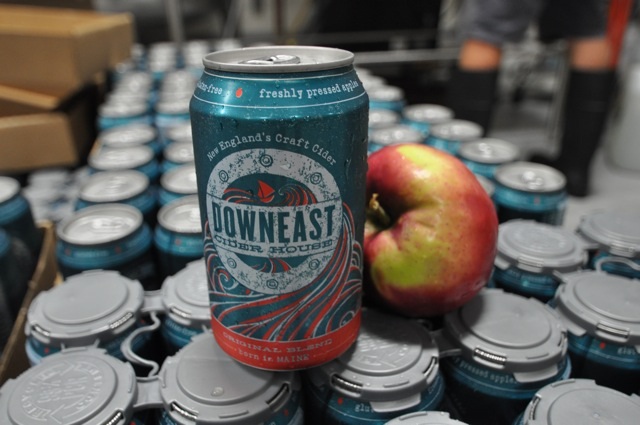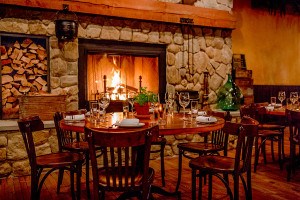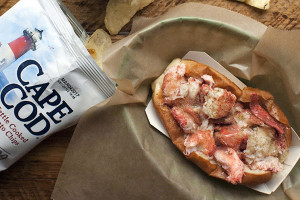Three New England Ciders to Watch (and Drink)
 Cider apples from Farnum Hill. Learn more about them ahead. Photo courtesy of Facebook/Farnum Hill
Cider apples from Farnum Hill. Learn more about them ahead. Photo courtesy of Facebook/Farnum Hill
Nine days after the pilgrims landed on Plymouth Rock, William Blackstone planted the first European apple trees. Some went to eating and cooking, others were held back for vinegar and apple jack, but a majority was grown for hard cider production. Well before barley and hops took to the fields of the Midwest, and vineyards found a suitable home in the West, cider was the bedrock of a culture both hard-up for fun and lacking palatable drinking water. Cider was such an integral part of America that colonists once used it as a form of currency and children swilled it in the watered-down, lower-proof Ciderkin. By the turn of the 18th century, New England was producing over three hundred thousand gallons a year. A hundred years later, thanks to Prohibition, it had almost completely vanished from public consumption.
Until recently, cider was mired in mediocrity and suffered from a well-earned reputation as a weak, sugary alternative to beer. It could be found on the same dusty lower shelves as wine coolers and other clear malt concoctions. But adventurous apple growers in Michigan, Upstate New York and New England have started replanting heirloom varieties, and a new crop of enthusiastic cider producers has emerged championing the virtues of this lost beverage. Now, like craft beer and pre-Prohibtion cocktails, cider is due for a major resurgence—after the jump, learn about some fantastic local varieties, and where to find them.
BANTAM CIDER
 Photo by MB Keiller, courtesy of Bantam Ciders
Photo by MB Keiller, courtesy of Bantam Ciders
The inspiration for Cambridge’s Bantam can be traced back to the picturesque hills of Azores, Portugal and the grapevines that blanket the landscape. Cofounder Michelle da Silva was raised in a family where it was unheard of to go to the store for a bottle of wine, what with the raw materials growing wild in her backyard. From an early age, Da Silva developed a passion for the wine-making process that translated well to the apple orchards of New England.
Along with her partner, Dana Masterpolo, Da Silva released her first cider, Bantam Wunderkind, earlier this year. Coined as a Modern American Cider, Wunderkind has a refreshing effervescence, a delicate floral aroma and a clean citrus finish. Blended from five different varieties sourced from farms in Central and Western Massachusetts, Bantam strives for a balance between sweet and tart in a category littered with one-note offerings. As Materpolo explained, “Our goal was to pull back from the associations people have with cloyingly sweet products and to make one that’s very well-balanced.”
Although Masterpolo was reluctant to divulge the particular apple varieties they settled on for Wunderkind, she admits there’s some combination of Cortlands, Macintosh and Empire apples along with two others, quantities of which fluctuate depending the quality of the harvest.
“The idea for our first product especially, was that we were going to use apples that were largely available, as opposed to very esoteric limited-available fruit,” says Masterpolo. “The reason was more philosophical. Because it was our first product, we wanted to have it available (to the public) and we wanted to do what we wanted to do, which was to use the fruit that was there as opposed to dictating to somebody to replant there trees to give us a particular type.”
If wine was their initial culinary muse, craft beer has become their business model. “Within the wine industry there’s always been deeply embedded rules as to what wine is and how to make proper wine. Though the wine market has remained steady, it hasn’t spiked or blossomed the way the craft beer market has recently. I think that’s due to the fact that they’ve just basically said, ‘Who cares about rules, this is about creating stuff that is great!’ I think that there’s a lot to that.”
Masterpolo and Da Silva are currently experimenting with dry hopped ciders, wild yeast fermentation and more tannic heirloom varieties. You’ll be able to find their newest offering, a bourbon barrel-aged cider made with Reine de Pomme apples (from Apex Orchards in Greenfield) at the end of November. Quantities will be very limited, so keep after your local wine shop.
Where to find Bantam: Strip T’s (Watertown), Hungry Mother, T.W. Food, Ten Tables, Grass Fed (Jamaica Plain), Pigalle, Salty Pig, Coda, Eastern Standard
Favorite Ciders (besides their own): Farnum Hill Ciders (New Hampshire) and Domaine Bordatto Basajuan (Basque)
DOWN EAST CIDER
When Colorado-based Oskar Blues began canning their Dale’s Pale Ale in 2002, they unwittingly introduced the biggest thing to happen to craft beer since Jimmy Carter’s H.R. 1337 Bill-a watershed moment for home brewers. Now those convenient aluminum containers, which protect their contents from flavor-killing flourescent lights, have made their way into hard cider.
Ross Brockman and Tyler Mosher met each other at Bates College in Maine, where an offhanded comment by Tyler’s father had the two dreaming of opening a cidery. One with cans. “A lot of people have been packaging cider like wine in larger format bottles,” says Mosher. “We wanted it to be more approachable. We wanted to make it less formal, but still have the same quality.”
The domestic market at the time was saturated with mediocrity and most examples, Mosher says, either “tasted like sweet concentrate or like cheap white wine.” They envisioned a fresher-tasting, American-style cider that emphasized native varieties. After experimenting with hundreds of test batches, they settled on a blend of Red Delicious, Yellow Delicious, Cortland and Gala apples, most of which come from Ricker Hill Orchards in Maine.
The final product has the same murky hue, apple spice notes and low acidity as its non-alcoholic counterpart. The 5.1% ABV is extremely deceiving, and even though it might not have the complexity of other ciders, its juiciness is an epiphany.
Look for Down East Cider’s newest cider infused with fresh New England cranberries due out before Thanksgiving.
Where to find Down East Cider: Thirsty pig (Portland, MA), Cambridge Brewing Company, Salty Pig, Mead Hall
Favorite Ciders (besides their own): Bantam Wunderkind
FARNUM HILL CIDER
 Photo courtesy of Facebook/Farnum Hill
Photo courtesy of Facebook/Farnum Hill
“Cider producers are discovering what wine people have known forever, and what cider people from elsewhere have known forever: it matters a great deal what apples you use,” says Steve Wood, owner and manager at Farnum Hill Cider.
Thirty years ago, Wood was driving through Wales on his way to London when he noticed some strange, gnarly apple trees growing along the side of the road. His curiosity regarding their sour, almost inedible fruit, led him to an English cider maker who happened to introduce him to a fascinating underworld of ancient varietals. When he returned to his farm in Lebanon, New Hampshire, Wood ripped up healthy Cortland and Gala trees to begin planting these unusual varieties in a ever-burgeoning quest to bring serious cider to the U.S.
Wood is now widely considered a guru, training hungry young cider producers everywhere from Michigan to Texas to the Pacific Northwest. And although he sells a lot of his Wickson, Golden Russet and Ashmead’s Kernel trees, he also is trying to establish a category.
“We’re encouraging growers to actually plant this fruit. Developing the broader market was a real challenge and the problem that became clearer and clearer to us was that there wasn’t a category. There was a category, but it had things like Hornsby in it, stuff you really didn’t want to be next to. I’m not comparing our stuff to Chateauneuf du Pape, but it would be a little like putting Chateauneuf du Pape next to Bartell’s & Jaymes.”
Wood has been giving away grafting wood for years, hoping that others would join him in his quixotic dream of making New England the Napa Valley of cider producers. “In most years in the past we’ve given away a few hundred to a thousand trees this year it was over ten thousand trees’ worth. So people are actually planting this stuff now.”
Farnum Hill has a number of stellar examples, particularly their Semi-Dry Cider with its pear-like aromas and champagne yeastiness and the Farmhouse cider, which resembles an Aligote, the dry, white burgundy traditionally used in a Kir.
Where to Find Farnum Hill: Deep Ellum, Redbones Barbecue, The Abbey
Favorite Cider (besides their own): West County Cider (Colrain, MA), Slyboro (Granville, NY), Breezy Hill Orchard and Cider Mill (Hudson Valley, NY), Eden Ice Cider Company (Vermont), Bellwether (Trumansburg, NY), Eve’s Cidery (Van Etten, NY)
For more online food coverage, find us on Twitter at @ChowderBoston



